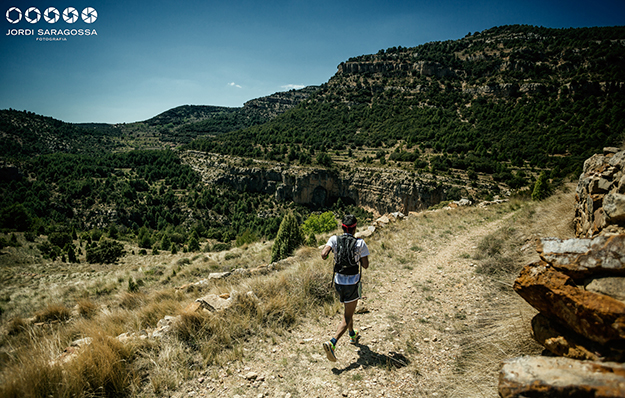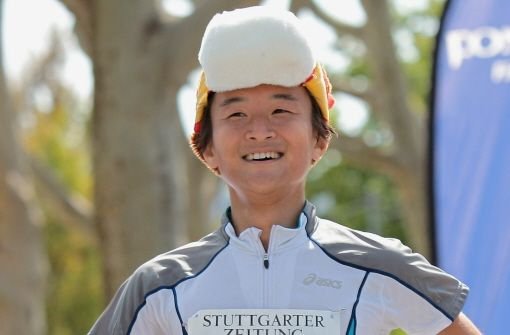Last updated: 19-Jul-18
By Sarah Cooke
Sport and fitness are traditionally social activities – played in teams and/or against other people in front of a crowd. As runners, we may ‘compete’, but most of us race to meet our personal goals with no hope of a podium finish and our training may well be solitary.
The same is not true of other athletes. An elite runner will have an eye on the podium, may well be part of a team for their country or a brand and will be watched by people s/he will never meet. Even at an amateur level, a footballer or cricketer can reasonably expect to be on the winning team some of the time. Although the showcasing of fitness achievements on social media is at times derided, it is part of human nature to want to celebrate victories and receive validation for our efforts. A Facebook like, a retweet or kudos on Strava is the 21st century’s applause.
Despite its growing popularity, ultra running remains relatively niche. If I wanted to meet local road runners, I could join a club in my town. If I wanted to meet footballers, there would be a team within a few miles of my home. Ultra runners are more thinly spread, but we are passionate. Training for a marathon requires time and dedication and many people say ‘never again’. To consider going further isn’t something you do only to lose weight, fundraise or lower your cholesterol – there are easier ways of achieving those things.
To spend hours and even whole days running, you have to love it, and when you love something it’s natural to seek out like-minded people. We’ve all seen the glazed look that comes over the faces of family and friends when we start talking about running. When a group of ultra runners comes together, there is something almost magical about that connection and camaraderie. We are a friendly bunch, and the longer the race, the more evident this is – we look after each other. Outside of races, these opportunities to meet can be rare, and social media offers a virtual community where our borderline obsession with running is embraced. It enables us to find kindred spirits and I see many examples of people running together in the real world after ‘meeting’ in the virtual one.
According to research (Bazarova & Choi, 2014; Marshall, Lefringhausen & Ferenczi, 2015), reasons for social media sharing fall into four categories: seeking validation, communication, self-expression and sharing information. These vary depending on the situation and the traits and self-esteem of the person. These are all relationship-orientated goals regardless of whether they are part of face-to-face or virtual encounters. We either want to receive praise, initiate an interaction, express feelings or tell people something.
These are valid and healthy motivators, but if we don’t get the response we seek or if one of these needs feels overwhelming because of other things going on in our lives, then we can lose perspective on what we are posting or lose perspective on what we are reading. Self-awareness, as well as a willingness to consider other people’s reasons for sharing, may help you to retain a balanced view. Instead of feeling annoyed or downhearted, ask yourself ‘Why am I sharing this?’, ‘What has happened to make this person share this today?’, ‘Why am I running?’, ‘Does this person have different goals from me?’.
I’ll confess to being a Strava addict – my feed is full of people who support me, make me laugh, inspire me and offer advice. I follow people whose easy pace is faster than my sprint, people who have run every day for years, people who are happy to run at a social pace and many more besides. I love the variety. It no longer bothers me when I see people running faster than I can because I know that we have different goals and that our reasons for running may be different. However, it saddens me when I see people judging their own performance negatively or feeling defeated by their perception that everyone else is ‘better’ at running.
As a professional, I worry when I see photos on my twitter feed of people who seem to be seeking affirmation for a particular body-shape or muscle definition and I hope that they also have other reasons for running.
It saddens me when I realise that someone has stopped running because they can’t bear to upload a run which they perceive to be inadequate or has left social media because they are injured and find seeing other people running unbearable.
I am not anti social media, but I am anti anything that makes people feel bad about themselves. It is worth remembering that it is possible to go for a run without uploading it to a fitness app or sharing it on Facebook. I’m not suggesting that sharing your achievements is bad, but if it is making you feel bad then something needs to change. There will always be someone faster than you, there will always be someone running further or higher than you. Bear in mind that you don’t know what their reasons for running are, what their goals are or what else they are juggling in their life and they don’t know yours.
There is evidence to suggest that, for some people, healthy competition on social media can improve performance (Aral & Nicolaides, 2017), but this depends on your ability to follow the right people and make relevant comparisons. If you are training for a 50-miler but you are comparing yourself to runners who target 10ks then you are going to feel slow. You could try and compete with them, but it won’t help you reach your goal. If you struggle with injuries then you are battling with more than a runner who is injury-free, each mile is a bigger achievement, so don’t worry if you log fewer miles than they do.
Thankfully, I have seen little of the trolling that has plagued professional athletes in the non-professional running world, but that doesn’t mean it never happens. Bullying on social media is incredibly damaging – you can’t leave it behind at the office door or the running track. It is a 24/7 world and if it’s having a negative impact on you then switch off/delete/block.
On a less extreme level, if you are giving yourself a hard time because what you see online makes you feel inadequate then it’s time to consider whether you need a social media break or to follow different people. Make the network work for you, embrace the people who make you feel good and remember how little you know about many of the people you follow. Your training is about gradually working towards your goals and not about how you compare to others. If you struggle to set realistic goals or struggle to stick to them, then my earlier articles on goals and training plans may be helpful. If you take one thing from this article, remember to run for yourself and to aim for a social network (virtual or otherwise) where there is mutual pleasure in seeing each other achieve.





